Jaguar Books on Latin America Series
William Beezley and Colin MacLachlan, Series Editors
Reconstructing Criminality in Latin America
Edited by Carlos A. Aguirre and Robert Buffington
Sport in Latin America and the Caribbean
Edited by Joseph L. Arbena and David G. LaFrance
Wars of Independence in Spanish America
Edited by Christon Archer
Mass Migration to Modern Latin America
Edited by Samuel L. Baily and Eduardo Jos Mguez
Adventures into Mexico: American Tourism Beyond the Border, 1945Present
Edited by Nicholas Dagen Bloom
Molding the Hearts and Minds: Education, Communications, and Social Change in Latin America
Edited by John A. Britton
Reconstructing Criminality in Latin America
Edited by Robert Buffington and Carlos A. Aguirre
Democracy in Latin America: Patterns and Cycles
Edited by Roderic Ai Camp
Revolution and Revolutionaries: Guerrilla Movements in Latin America
Edited by Daniel Castro
Communication in Latin America: Journalism, Mass Media, and Society
Edited by Richard R. Cole
Slavery and Beyond: The African Impact on Latin America and the Caribbean
By Darin J. Davis
Money Doctors, Foreign Debts, and Economic Reforms from the 1890s to the Present
By Paul W. Drake
Strange Pilgrimages: Exile, Travel, and National Identity in Latin America, 18001990s
Edited by Ingrid E. Fey and Karen Racine
On Earth as It Is in Heaven: Religion in Modern Latin America
Edited by Virginia Garrard-Burnett
I Saw a City Invincible: Urban Portraits of Latin America
Edited by Gilbert M. Joseph and Mark D. Szuchman
Between Two Worlds: Mexican Immigrants in the United States
Edited by David G. Gutirrez
The Indian in Latin American History: Resistance, Resilience, and Acculturation
Edited by John E. Kicza
Contemporary Indigenous Movements in Latin America
Edited by Erick D. Langer with Elana Muoz
Authoritarian Regimes in Latin America: Dictators, Despots, and Tyrants
By Paul H. Lewis
U.S.-Mexico Borderlands: Historical and Contemporary Perspectives
Edited by Oscar J. Martnez
Work, Protest, and Identity in Twentieth-Century Latin America
Edited by Vincent C. Peloso
The Third Wave of Modernization in Latin America: Cultural Perspective on Neo-Liberalism
Edited by Lynne Phillips
Tropical Rainforests: Latin American Nature and Society in Transition
Edited by Susan E. Place
Where Cultures Meet: Frontiers in Latin American History
Edited by Jane M. Rausch and David J. Weber
Rank and Privilege: The Military and Society in Latin America
Edited by Linda A. Rodrguez
The Church in Colonial Latin America
Edited by John F. Schwaller
Colonial Spanish America: A Documentary History
By William B. Taylor and Kenneth Mills
Drugs in the Western Hemisphere: An Odyssey of Cultures in Conflict
Edited by William O. Walker III
Where Cultures Meet: Frontiers in Latin American History
Edited by David J. Weber and Jane M. Rausch
Confronting Change, Challenging Tradition: Woman in Latin American History
By Gertrude M. Yeager
ROWMAN & LITTLEFIELD PUBLISHERS, INC.
Published in the United States of America
by Rowman & Littlefield Publishers, Inc.
A wholly owned subsidiary of The Rowman & Littlefield Publishing Group, Inc.
4501 Forbes Boulevard, Suite 200, Lanham, Maryland 20706
www.rowmanlittlefield.com
Estover Road, Plymouth PL6 7PY, United Kingdom
Copyright 2007 by Rowman & Littlefield Publishers, Inc.
All rights reserved. No part of this publication may be reproduced, stored in a retrieval system, or transmitted in any form or by any means, electronic, mechanical, photocopying, recording, or otherwise, without the prior permission of the publisher.
British Library Cataloguing in Publication Information Available
Library of Congress Cataloging-in-Publication Data
Latin America during World War II / edited by Thomas M. Leonard and John F. Bratzel.
p. cm.(Jaguar books on Latin America series)
Includes bibliographical references and index.
9781461638629
1. World War, 1939-1945Latin America. 2. Latin AmericaHistory1898-1948. I. Leonard, Thomas M., 1937II. Bratzel, John F. III. Series: Jaguar books on Latin America.
D768.18.L38 2007
940.538dc22
2006010909
Printed in the United States of America
 The paper used in this publication meets the minimum requirements of American National Standard for Information SciencesPermanence of Paper for Printed Library Materials, ANSI/NISO Z39.48-1992.
The paper used in this publication meets the minimum requirements of American National Standard for Information SciencesPermanence of Paper for Printed Library Materials, ANSI/NISO Z39.48-1992.
Preface
Despite the significant impact that World War II had upon Latin America, the story has yet to be fully told. The availability of new archival materials, personal papers, oral histories, and the like during the last generation has not yet brought about a scholarly and comprehensive study to update R. A. Humphriess fine two-volume 19811982 work, Latin America and the Second World War . Nor have scholars updated the two-generation-old texts by Conn, Engelman, and Fairchild on the U.S. Armys Latin American wartime strategies. Yet, using the new materials, scholars have produced an abundance of literature that focuses on Latin American political leaders at that time, their turn to the import substitution industrialization economic model, and, more recently, Nazi influence throughout the Western Hemisphere.
This volume addresses the void in the historical literature by drawing upon the expertise of those who have examined various facets of World War II in selected Latin American countries. In so doing, this volume provides the reader with a greater appreciation of the total impact the war had upon Latin America.
The studies in this volume examine seven individual countries (Argentina, Brazil, Chile, the Dominican Republic, Mexico, Panama, and Peru); two regions (Central AmericaCosta Rica, El Salvador, Guatemala, Honduras, and Nicaraguaand the Bolivarian nations of Colombia, Ecuador, and Venezuela); and one territory (Puerto Rico). The breadth of coverage provides for an understanding of the wars impact upon the different societies of Latin America.
As originally conceived, the contributors were asked to focus upon a common set of questions for each polity:
- How did the country, region, or territory respond to the outbreak of war in Europe in 1939 and the events leading to the global conflict that erupted in December 1941?
- After that date, what were its policies toward the Axis?
- How did it deal with the internal Axis threat?
- Did it cooperate with the Allies in a particular fashion?
- What were the responses to the economic and social dislocations caused by the war?
In an effort to avoid placing constraints upon the contributors, the United States was deliberately left out of this equation.
As John Bratzel explains in the introduction and the reader will experience throughout the volume, the answers to these questions vary significantly for each country. The reader will also discover that U.S. policies contributed to the wars impact upon each Latin American nation.
For readers wanting to explore Latin Americas World War II experience further, the bibliography at the conclusion of this volume presents the most salient literature on the subject. For those who wish to conduct further research on the Latin American experience, the same bibliography provides notations on the availability and extent of archival materials, and the constraints placed upon them, across Latin America and elsewhere.

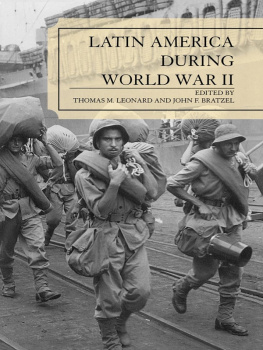
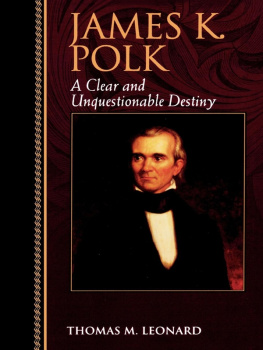

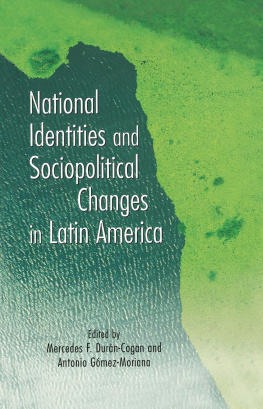

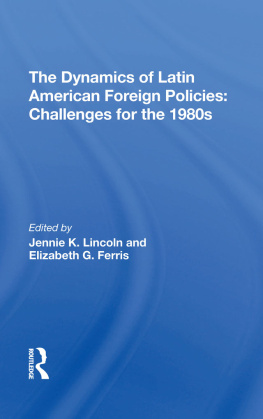
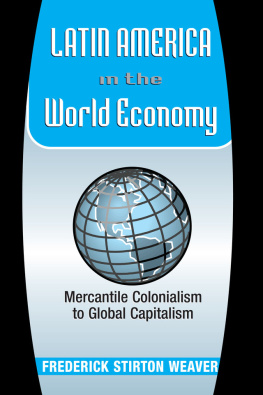
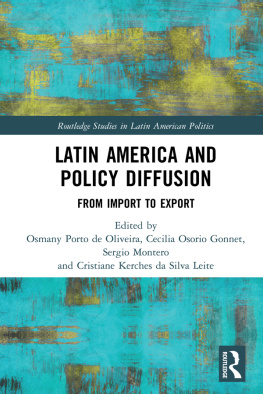
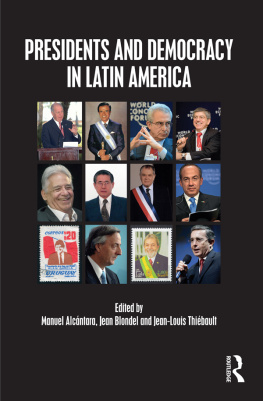
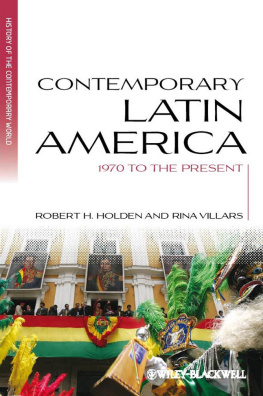
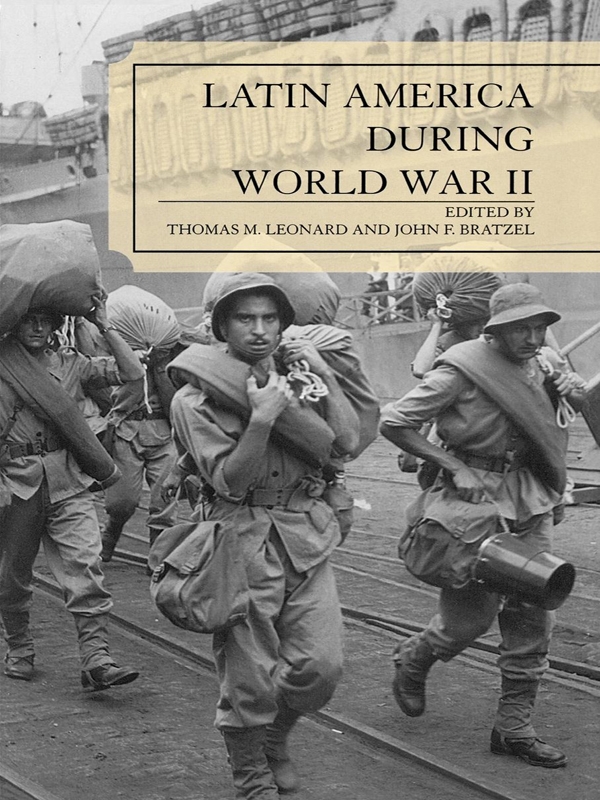
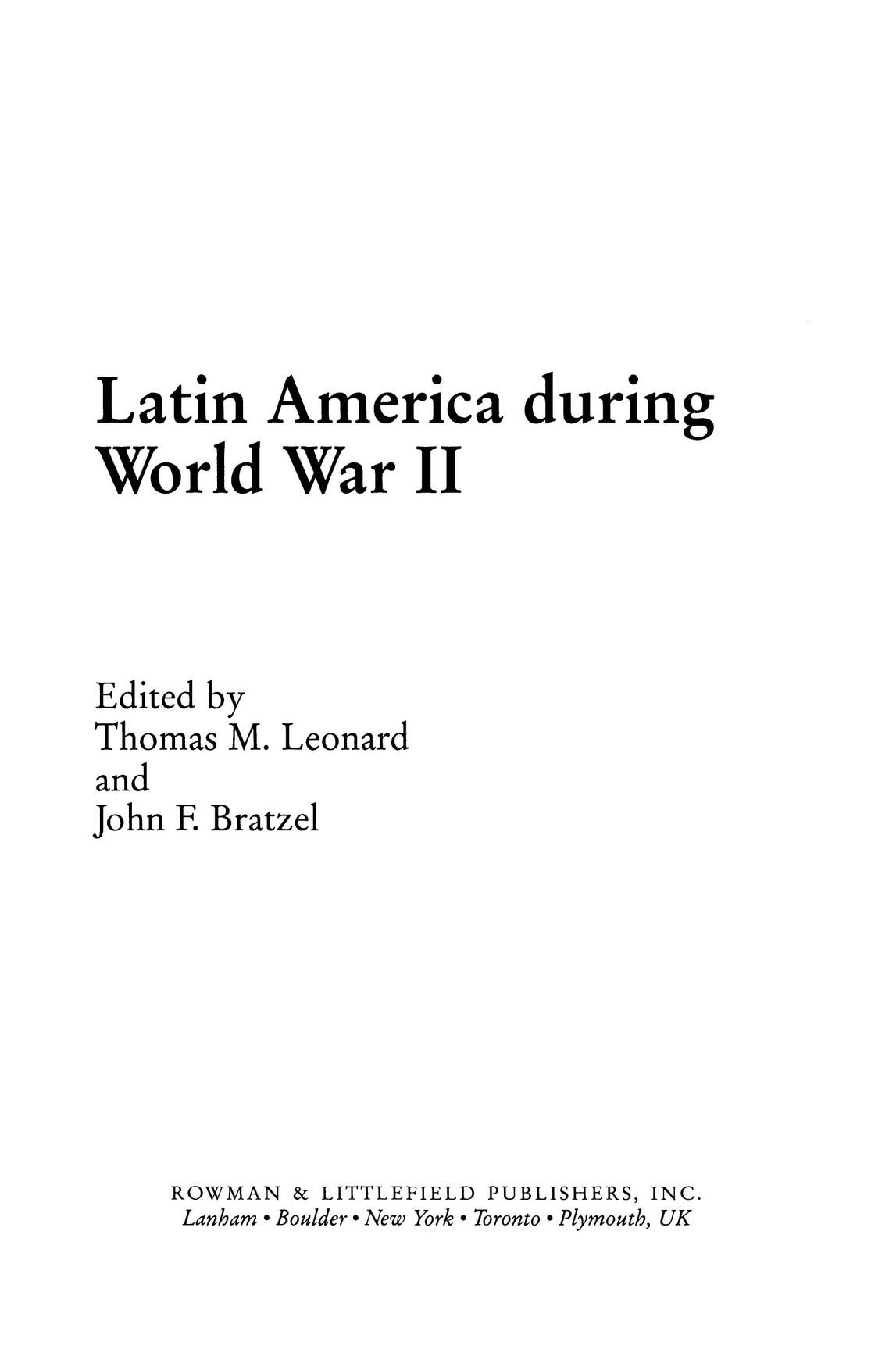
 The paper used in this publication meets the minimum requirements of American National Standard for Information SciencesPermanence of Paper for Printed Library Materials, ANSI/NISO Z39.48-1992.
The paper used in this publication meets the minimum requirements of American National Standard for Information SciencesPermanence of Paper for Printed Library Materials, ANSI/NISO Z39.48-1992.